Pack Up Your Troubles

Brief Synopsis
Cast & Crew
H. Bruce Humberstone
Jane Withers
The Ritz Brothers
Lynn Bari
Joseph Schildkraut
Stanley Fields
Film Details
Technical Specs

Synopsis
After the United States joins the war against Germany in 1917, vaudevillians Harry, Al and Jimmy Ritz have a difficult time getting anyone to book their act, in which they bill themselves as the Silly Schultzes and impersonate Germans. A friend advises the brothers to join the army, which they do, although their illusions that the cavalry is a cushy company are quickly destroyed. Their company, headed by the crusty Sergeant "Angel Face" Walker, is sent to Saint Marie, France, where the brothers befriend Collette, an American orphan whose father, Captain Paul Didot, was killed while serving in the French army. Collette lives with Madam Marchand, whose other boarder Yvonne is in league with collaborationists Jean and Renard. The night of the soldiers' arrival, Yvonne dances and Collette sings at Madam Marchand's inn, and Collette is happy to see Pierre Ferrand, who was her father's best friend. Yvonne tries to keep Pierre, who is actually Captain La Coste of the French Intelligence, at the inn while other spies search his rooms, but he returns and is injured in a struggle. Collette finds him and, just before he dies, he tells her that her father, who is alive and spying in Germany under the name of Hugo Ludwig, is in terrible danger. He tells her to inform Colonel Giraud that her father must be gotten out of Germany, and Collette goes to Harry, Al and Jimmy for help. They smuggle her past the sentry, but when she reaches headquarters, she discovers that Giraud is at the front. While Collette hides in a troop transport to get to the front, the Ritz brothers are back at the inn, wearing German uniforms and rehearsing their act. French soldiers, mistaking the brothers for real Germans, chase them, and after going up in a hot air balloon and being shot down, the brothers end up behind German lines. They are again mistaken for real Germans and are assumed to be returning from a regiment that was missing in action. They are sent to the headquarters of General Von Boech, to which Collette has also been sent after she had been picked up while wandering around the front. Collette recognizes her father, who is impersonating a German soldier, and while the two have a tearful reunion, Collette is in turn recognized by Yvonne, who is there to report to Von Boech. The general, now suspicious of Didot, gives him false information about troop movements, which Didot gives to Collette to take to Giraud. After Collette leaves, Von Boech orders Didot executed, but Harry, Al and Jimmy rescue him and kidnap the general. Despite a series of misunderstandings, Didot gets through to Giraud with the correct information, while the brothers are captured and taken to a French prisoner of war camp. Soon after a successful attack, Collette and Didot find the brothers and convince the guards that they are American heroes, not German soldiers. As the brothers are celebrating their release, their happiness is tempered by the appearance of Walker, who berates them for a letter they wrote to General Pershing, which resulted in Walker's demotion.

Director

H. Bruce Humberstone
Cast
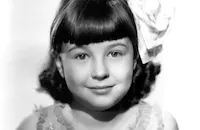
Jane Withers

The Ritz Brothers
Lynn Bari
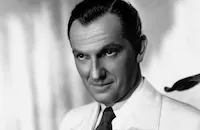
Joseph Schildkraut
Stanley Fields
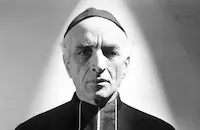
Fritz Leiber
Lionel Royce
Georges Renavent
Adrienne D'ambricourt
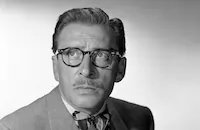
Leon Ames
William Von Brincken
Ed Gargan
Robert Emmett Keane
Henry Victor
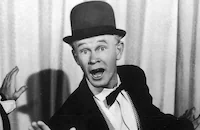
William Benedict
Mary Foy

Irving Bacon
James Dundee
George Sorel
Walter Bonn
Joe Romantini
Eugene Borden
Louis Mercier
Constant Franke
Jacques Vanaire
Robert Davis
Arno Frey
Adolph Milar
John Bleifer
Will Kaufman
George Cathrey
Dave Thursby
Bob Stevenson
Douglas Gerrard
Jack Richardson
Leyland Hodgson
Jean Del Val

Billy Bevan
Lester Scharff
Colin Kenny
Tom Mizer
Hans Hopf
Clyde Cook
Henry Von Zynda
Marcel Du Bois
Hal K. Dawson
Hooper Atchley
Harrison Greene
Dick Elliott
Fred Cavens
Jean Perry
Jean De Briac
Harold Goodwin
Glen Cavender
Crew
William H. Anderson
Lucien Andriot
Harry Brand
Lou Breslow
Otto Brower
Sidney Clare
Richard Day
Nick De Maggio
Owen Francis
Bernard Freericks
Albert Hogsett
Samuel Kaylin
Thomas Little
Doris London
Helen A. Myron
John Stone
Jule Styne
Louis J. Witte
Saul Wurtzel
Sol M. Wurtzel

Film Details
Technical Specs

Articles
Pack Up Your Troubles
Like Temple and other child stars, Withers would falter as she progressed into her teen years - although she was still going strong at age 13, when she starred in Pack Up Your Troubles (1939) with the comedy team the Ritz Brothers. As recently as 1937, she had been named one of the Motion Picture Poll's top ten box-office favorites, registering at No. 6. That same year Fox had given the Ritz Brothers - Al, Jimmy and Harry - their own starring series, starting with Life Begins in College.
In Pack Up Your Troubles, filmed at the beginning of World War II but set in 1917 during WWI, Withers plays Colette, the American daughter of French military man Hugo Ludwig (Joseph Schildkraut), who is presumed dead. The Ritzes, as struggling vaudevillians who have been sent to France as caretakers of some Army mules, blunder into the village where Colette lives and befriend her. Mayhem ensues when they are mistaken for German spies and make their escape in a hot-air balloon.
Colette meanwhile has discovered that her father is alive after all, working undercover as an intelligence officer behind German lines. In an unlikely development, to warn her father that he is in danger, she braves her way into No Man's Land and eventually to the German High Command. Then, daring barbed wire and bullets, she finds her way back with an important message for the French Chief of Staff.
In addition to Schildkraut (an Oscar winner for his supporting role in 1937's The Life of Emile Zola), the supporting cast includes Fritz Leiber as Ludwig's assistant, who poses as a village cobbler, and Stanley Fields as a bullying sergeant. In a role that is mostly decorative, Lynn Bari plays a beautiful German spy.
A reviewer for Australia's Sydney Morning Herald wrote that, "It was inevitable when war broke out that Jane Withers would have a war picture... As becomes her propensity for fixing things for anyone in difficulties, Jane packs up everyone's troubles in a way which shows that had she gone much further the war itself might have been stopped." Overall, the reviewer considered the movie "a lively production, well produced and well balanced with the buffoonery of the Ritz Brothers."
Frank S. Nugent wrote in The New York Times that, "Although the prospect of Jane Withers, the first World War and the Ritz Brothers all in a single picture seems calculated to shake the nerves of a sensitive cinemagoer, it at least serves to remind us that Miss Withers is growing, even if the art of the Ritzes is not. It should also be noted in favor of Pack Up Your Troubles that it packs off the boys in something other than a vehicle, for a welcome change." In faint praise, Nugent added that there were moments when the brothers "seem almost funny again."
Withers was soon to end her association with Fox. Beginning in 1941, she moved on to star in low-budget films for Columbia and Republic, with lukewarm results. She drifted away from films after 1947 but made an impressive comeback in a character role in George Stevens' Giant (1956). She also enjoyed success on television in various series and, especially, as Josephine the Plumber in Comet cleanser commercials. She has remained active, appearing at various public events and lending her voice to animated films.
The Ritz Brothers, who had sprung from vaudeville with an act that recalled The Marx Brothers, broke into films in the mid-1930s and earned a contract with Fox, where they were featured in the studio's Grade A musicals starring the likes of Alice Faye and Sonja Henie. In 1937 Fox began starring them in their own films, but the brothers complained about the quality of the scripts. After Pack Up Your Troubles, they were so dissatisfied that they left Fox for good to work at other studios as well as in nightclubs and, occasionally, on television.
By Roger Fristoe

Pack Up Your Troubles
Quotes
Trivia
Notes
The working titles of this film were Tin Hats and We're in the Army Now. According to a Hollywood Reporter news item, Otto Brower directed some of the battle scenes at the Lasky ranch in the San Fernando Valley, CA. Some reviewers remarked on Jane Withers' slimmer shape and more adult appearance in the picture.














